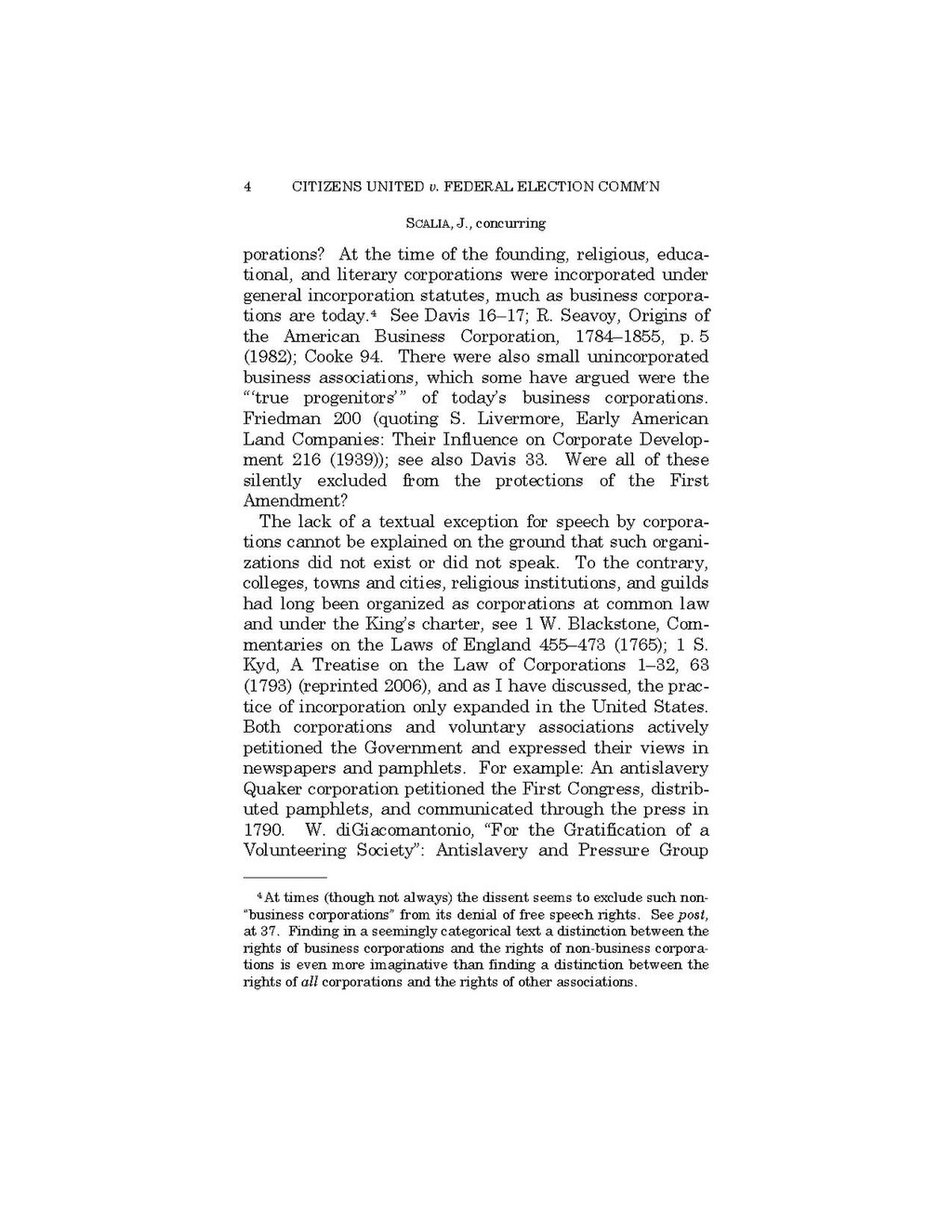SCALIA J.,concurring
porations? At the time of the founding, religious, educational, and literary corporations were incorporated under general incorporation statutes, much as business corporations are today.[1]See Davis 16–17; R. Seavoy, Origins of the American Business Corporation, 1784–1855, p. 5 (1982); Cooke 94. There were also small unincorporated business associations, which some have argued were the "'true progenitors'" of today’s business corporations. Friedman 200 (quoting S. Livermore, Early American Land Companies: Their Influence on Corporate Development 216 (1939)); see also Davis 33. Were all of these silently excluded from the protections of the First Amendment?
The lack of a textual exception for speech by corporations cannot be explained on the ground that such organizations did not exist or did not speak. To the contrary, colleges, towns and cities, religious institutions, and guilds had long been organized as corporations at common law and under the King’s charter, see 1 W. Blackstone, Commentaries on the Laws of England 455–473 (1765); 1 S. Kyd, A Treatise on the Law of Corporations 1–32, 63 (1793) (reprinted 2006), and as I have discussed, the practice of incorporation only expanded in the United States. Both corporations and voluntary associations actively petitioned the Government and expressed their views in newspapers and pamphlets. For example: An antislavery Quaker corporation petitioned the First Congress, distributed pamphlets, and communicated through the press in 1790. W. diGiacomantonio, "For the Gratification of a Volunteering Society": Antislavery and Pressure Group
- ↑ At times (though not always) the dissent seems to exclude such non-"business corporations" from its denial of free speech rights. See post, at 37. Finding in a seemingly categorical text a distinction between the rights of business corporations and the rights of non-business corporations is even more imaginative than finding a distinction between the rights of all corporations and the rights of other associations.
